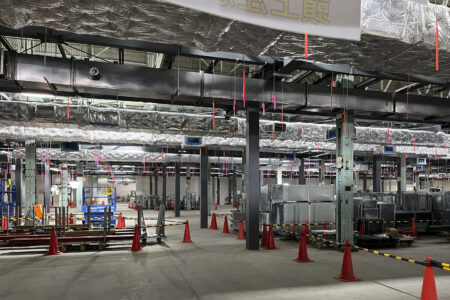Even though solar home systems are becoming cheaper and easier to access, barriers to their adoption persist among remote communities in developing countries, where solar panels can promote health and education, according to a new study of two rural villages in Ethiopia.
Affordable but uncertified and substandard solar panels, coupled with minimal government involvement in the rural energy-transition process, are among the key factors that hinder access to reliable electricity for local communities.
At the same time, when solar panels are added to homes, they offer a healthy and environmentally friendly alternative to kerosene lamps, and they support education by providing children electric light to study past sundown.
“Not a lot is known about how the energy transition to renewable energy is occurring in rural areas in the Global South, so we wanted to understand how households are involved,” said Yujin Lee, a doctoral student of Regional Science in the Department of City and Regional Planning in the College of Architecture, Art and Planning.
Lee is first author of the study “Upholding Household Agency in Climate Mitigation and Socio-technical Energy Transition in Ethiopia,” published March 23 in the journal Energy Policy.
“We need to ensure that a global energy transition toward renewable and clean sources should not leave behind those remote or rural populations in the developing world,” said Chuan Liao, the paper’s senior author and assistant professor in the Department of Global Development in the College of Agriculture and Life Sciences.
Ethiopia has developed a national electrification program with an existing and planned national grid system with the aim of electrifying all households within 25 kilometers (15.5 miles) of the nearest grid by 2030. Households located beyond 25 kilometers are expected to receive long-term off-grid solutions.
For the study, Lee traveled to Ethiopia in the summer of 2023 to interview people in three locations. She interviewed government and institutional workers in Addis Ababa, Ethiopia’s capital, at the epicenter of the grid system; and local leaders and residents in the Geta Data Zone beyond the 25 kilometer buffer from the existing grid and in the Kaffa Zone within the 25 kilometer buffer zone.
She found rural people were very open to adopting solar panels. “Having light at night has educational effects, allowing children to do homework and study longer,” Lee said. “All 16 households that were interviewed responded that they had no intentions of going back to using kerosene in the future.” Traditionally, young girls collect firewood for cooking, but when solar electricity can power stoves, it frees up time for girls to go to school, she added.
But adoption is partly thwarted by a lack of good quality solar panels in rural areas. Cheap, uncertified panels break within a few years, and they are often left as garbage, creating environmental pollution, Liao said.
Ongoing discussions between international organizations and the Ethiopian government seek to standardize solar panels and regulate disposal of batteries, Lee said.
Also, government officials rarely visited villages, especially those outside of the grid buffer zone and those that didn’t have roads. As a result, they were poorly informed about the realities of rural solar adoption. In Addis Ababa, officials claimed that solar adoption in rural areas was close to 80%, but in interviews with townships in villages, Lee found that number closer to 20%.
“It becomes problematic when government officials try and codify documents based on their understanding, which is very different from reality,” Lee said.
Local rural youth, many of whom are unemployed, also wish the government offered technical education on solar installation and maintenance, which could create livelihoods, yet no program exists for that.
Lee recommends that government officials take the time to visit rural areas, for communities to create platforms to be more involved in managing and being accountable for their own energy needs, and for governments, private companies, international organizations, and end users to develop systems for communicating more effectively.
More information:
Yujin Lee et al, Upholding household agency in climate mitigation and socio-technical energy transition in Ethiopia, Energy Policy (2024). DOI: 10.1016/j.enpol.2024.114067
Cornell University
Read the full article here








